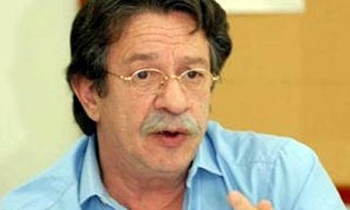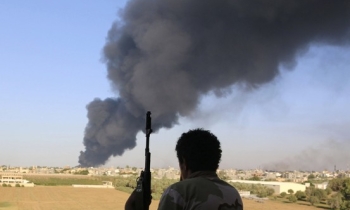
WHEN celebrated ABC News lead anchor and host of the World News Tonight programme, Peter Jennings, passed away yesterday, after a battle with lung cancer, the world mourned him. He was one of the longest serving among prominent anchormen, having started his career in 1980 and carrying on famously till 2003. He appeared for the prime time news at 7 pm, and was part of a famous trio, the other two being Ton Brokaw at NBC and Dan Rather at CBS. Brokaw retired from the job in December, and he was replaced by Brian Williams. Rather left the job in March, but not before facing criticism over some "wrong" reporting he did on president Bush’s military service.
I remember that in the days I was living in America in the early 80s, there was no CNN or round-the-clock news telecast. The only way to get international news was to wait for the 7 pm News, either on ABC or NBC, or the other channels, depending on one’s likes. Basically, the personality of the three anchormen was awesome, and they continued to be listened to even when CNN came up with its 24-hour news telecasts.
Something amazing about Peter Jennings, son of a noted Canadian broadcaster, was that he had little of formal education. In fact, he was a high school drop-out in Canada. Still, in later years, he became famous for his lectures and as a journalist. He won numerous awards and accolades in his long career. It was not easy for anyone to get this prestigious slot on any of the three famous TV channels those days. It all depends on one’s personality. To tell you the truth, I was watching Peter Jenning only lately. I, instead, used to be a fan of Ton Brokaw, who stepped down in December last. He had served NBC for over 20 years as anchor of the NBC Nightly News. His charming looks and way of presentation often fascinated me. He had qualities of a good journalist.
Dear readers, I was once told that in some third world countries where the media is not free and there are no independent newspapers, there is a system under which tough conditions are put on selection of Editor for journals. It stipulates that the Editor must have such and such educational qualifications, while overlooking his or her years of experience. There are some who are well experienced and very good at their jobs, but may not have the stipulated educational qualification. They might have learned the basics of journalism on their own and grew up in the profession. What matters is one’s professional attributes. Peter Jennings’ case proves that beyond any doubt.
Let me refer to an incident narrated by a lady colleague of Peter, and as revealed by the media. A young man walked upto Peter and told him he wanted to become an anchor like Peter. The famous anchor replied laughingly, "if you want to be a real journalist, you should do reporting and correspondence". That is it. You learn your ropes by direct experience, not through university degrees. If you have a passion or liking for the job, and if you are dedicated and determined, and willing to take risks in life, and if you have the courage-this is one of the most difficult and risky fields, and not easy as many might think-you excel in the field. This has nothing to do with university degree. As a matter of fact, in Peter’s case, he was not even a high school degree holder, and yet he won a top slot at prime time TV and was respected worldwide for his qualities as a journalist.
Yes, you have to have knowledge about what is happening around the world, must read a lot, have a passion for information, and you should have the aptitude to be a journalist. That’s all. Of course, you have to begin with reporting. And, good reporting is what makes a good journalist, and wins praise for a journalist. You have to be daring. It may be a war, it may be fight between people and people, but that is where action is, and that is where news is. You have to report directly from the theatre of action. That wins you praise. Chances are also that you might get hurt in the crossfire, or you may lose your life. Most of those in the Western media are ready and prepared to face such situations. But, they will not want to lose out on the thrills that such scenes give to a journalist. Courage matters also in respect of adverse situations in which one functions. If you don’t have courage, better not be a journalist. You could be in some place where there is no freedom of the press; or where it is promised openly and yet is not given in the real sense. Being free is one thing and pretending to be free is quite another. Only courageous journalists can discharge their responsibilities in the best way in such situations.
Consider the recent cases in America. A journalist of Time magazine refused to reveal the source before a court, in respect of a report he published. It was a unique case of a journalist being dragged before the court over the issue of sourcing of the report. It was solved in an extraordinary way as well. The presidential adviser, who was the source, came forward, and allowed his name to be revealed. Otherwise, the journalist was prepared to face the consequences, and yet would not reveal the name of his source. For a journalist, he has a duty to safeguard the confidentiality of the source. It must also be noted that America differentiates between what is civil and criminal when it comes to matters of press freedom. Defamation, for instance, is civil offence, not criminal. But journalists face situations courageously without compromising on principles.
These are qualities that make a good journalist. As we could see, ABC television channel gave Peter Jennings the prime time 60 minutes slot because he had the right kind of experience and competence to handle such an important job. That, they knew, had nothing to do with his educational qualification or rather the lack of it.









